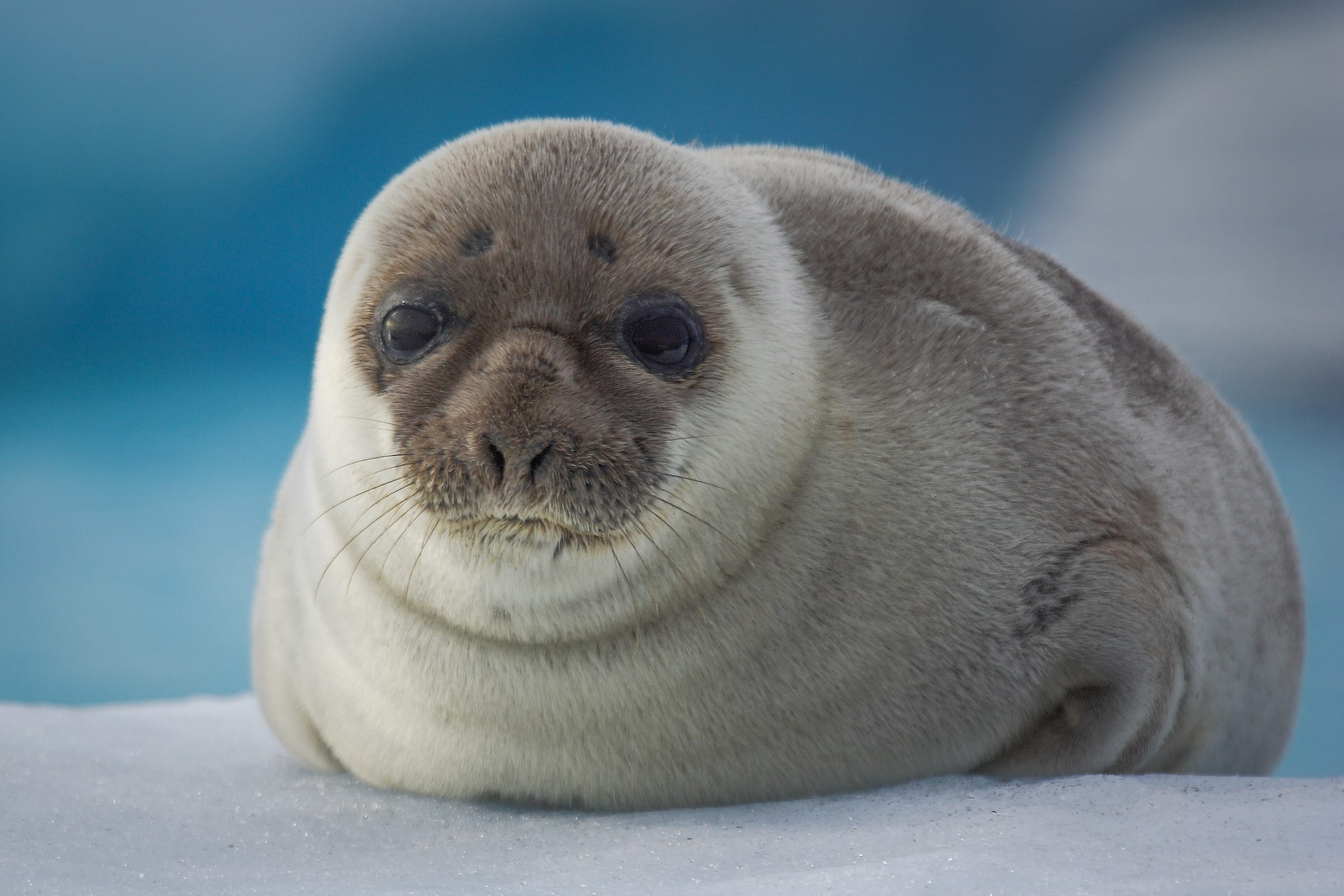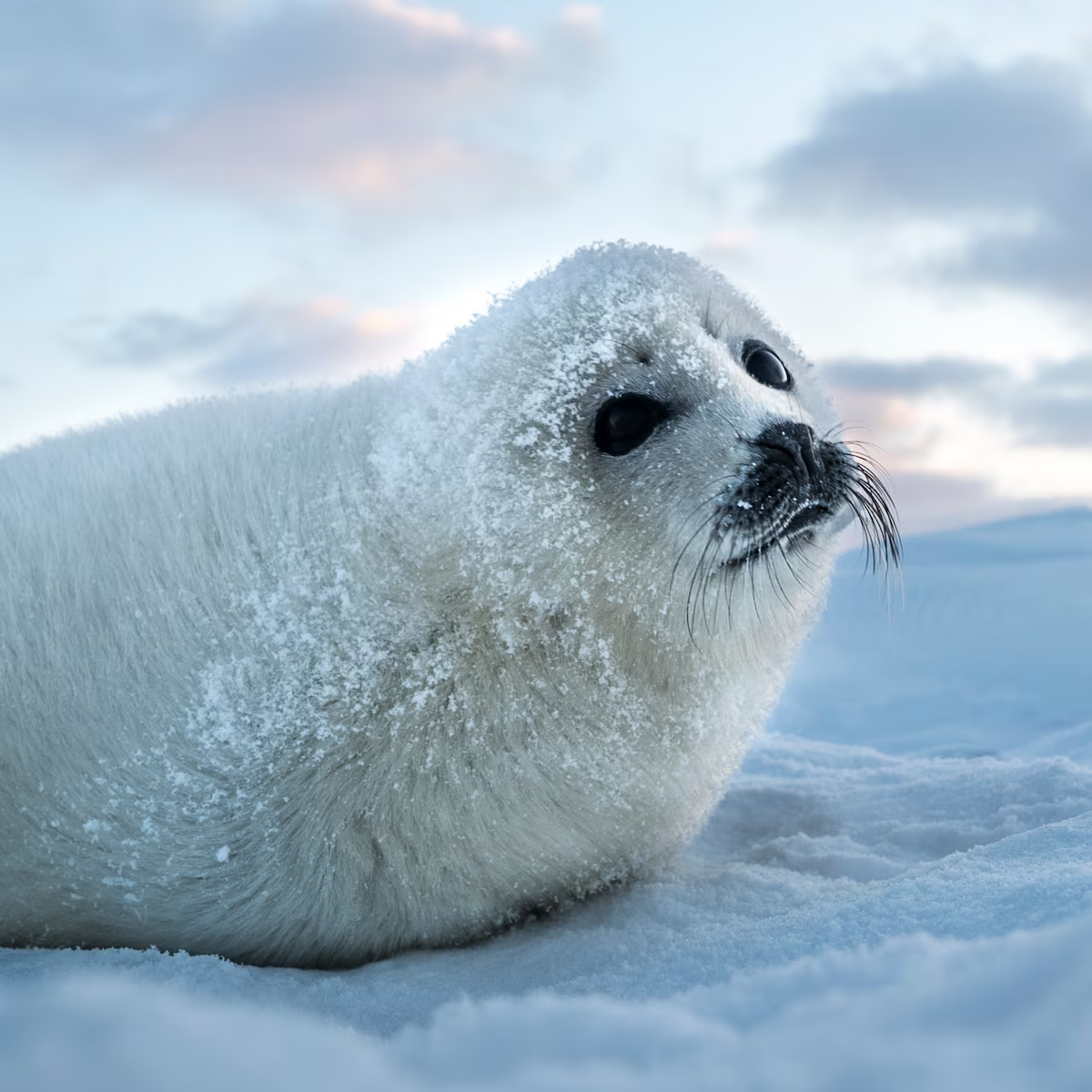What Is Seals Real Name - Uncovering Their World
Have you ever stopped to ponder the true identity of those sleek, whiskered creatures of the sea, the seals? It's a rather interesting thought, isn't it, to consider what makes them who they are, beyond just a simple label. When we talk about "what is seals real name," we're not exactly looking for a first and last name like you or I have, but more about what truly defines them in their natural surroundings. They are, you know, incredibly adapted to their watery homes, and their daily lives are full of surprising ways they survive and even thrive.
You see, when we ask about a seal's real name, it's a bit like asking what makes a forest a forest. It's not just the trees, is it? It's the whole living system, the way everything interacts. For seals, their "real name" is wrapped up in how they find their food, how they sense their surroundings, and even the unique ways their bodies work. It's a story of survival and clever adaptations that scientists are just beginning to fully appreciate, and it is, quite frankly, fascinating.
This deep dive into their existence helps us grasp what their "real name" truly means, not as a word, but as a collection of remarkable traits. From how they manage their energy during a hunt to the subtle ways they use their whiskers to feel out the water, every part of their being contributes to their unique identity. It’s a pretty complex picture, in a way, that goes far beyond any simple label we might try to give them.
Table of Contents
- Unmasking the Identity - What is Seals Real Name in the Wild?
- More Than Just a Name - What is Seals Real Name in Their Daily Lives?
- How Do They Find Their Next Meal - What is Seals Real Name for Hunting?
- Sensing the World Around Them
- A Unique Body Chemistry
- Living Alongside Humans - What is Seals Real Name for Coexistence?
- Researchers and Their Work
Unmasking the Identity - What is Seals Real Name in the Wild?
When we talk about "what is seals real name," especially for the creatures living in the ocean, it's not like they have a birth certificate or a family surname. Their identity, in a way, is tied to their species, their individual markings, and how they behave. Scientists often give them scientific names, like *Phoca vitulina* for a harbor seal, which is more of a classification than a personal name. But for those of us watching them, their real identity comes from their actions, their cleverness, and their place in the big, wide ocean.
Think about it: each seal, while belonging to a group, also has its own distinct personality and habits. One seal might be a particularly good hunter, while another might prefer certain resting spots. These individual quirks contribute to their "real name" in the sense of their individual identity within their kind. It’s not a word, but rather a collection of traits that make them who they are, truly. This understanding helps us appreciate them as more than just a generic animal, but as distinct beings in their own right, which is, honestly, quite special.
More Than Just a Name - What is Seals Real Name in Their Daily Lives?
So, if a seal doesn't have a name like "Robert" or "Susan," then what is seals real name in the context of their day-to-day existence? It's about their role, their purpose, and their survival strategies. They are, first and foremost, creatures that look for food to sustain themselves. This fundamental activity shapes a huge part of their lives, from how they move through the water to how they interact with their surroundings. It's a constant, vital part of their being, you know, this quest for nourishment.
Consider, for instance, the Weddell seals. Recent findings show that these seals tend to stay away from making really deep dives for their prey during the middle of the day. This isn't just a random choice; it's a smart way for them to keep going, to keep making one dive after another without needing to take a long break to recover. This approach lets them keep up their hunting efforts over and over, which is pretty clever, actually, when you think about it. It speaks to their efficiency and their innate understanding of their own body's limits and needs, which is, in a way, part of their "real name" – their operational identity.
How Do They Find Their Next Meal - What is Seals Real Name for Hunting?
The question of "what is seals real name" when it comes to finding food is really about their incredible senses and their hunting tactics. They don't just stumble upon meals; they employ a range of specialized abilities. For example, elephant seals possess large eyes that are particularly suited for picking up faint, glowing flickers in dim light. This means they can spot things that produce their own light, even in the deep, shadowy parts of the ocean where sunlight barely reaches, like the twilight zone. But they don't just rely on their sight.
They also count just as much on their other ways of sensing their surroundings to track down food and to get away from big predators like sharks and orcas in those dim, watery depths. This combination of sharp vision and other keen senses is what truly defines their hunting "name." It's their unique toolkit for survival. Could seals, for instance, also use their whiskers to "feel" the patterns in the water around them? This would allow them to follow fish as they swim by, almost like a living sonar system. It's a pretty remarkable thought, really, how finely tuned their senses are.
Sensing the World Around Them
Beyond just hunting, the ways seals sense their world are quite extraordinary and contribute significantly to their unique identity. Their whiskers, for example, are not just for show. They are highly sensitive tools that provide a wealth of information. These whiskers act as a sort of record of what they've been eating over time. As the whiskers grow, they take in molecular clues from the various kinds of food the seal consumes. It’s like a biological diary, in a way, of their diet.
Using a method called stable isotope analysis, researchers can examine these whiskers to learn about a seal's eating habits and where it has been. This technique allows them to piece together a seal's dietary timeline, giving them insights into their feeding patterns and the health of their environment. This ability to record their life story through their own body parts is a powerful aspect of their being, and it really highlights how specialized they are. It’s a very clever natural system, if you ask me.
A Unique Body Chemistry
Part of what makes a seal, well, a seal, and contributes to "what is seals real name" in a biological sense, is their truly special body chemistry. Scientists have discovered something quite fascinating about how seals handle glucose, which is a type of sugar that gives them energy. It appears that seals manage how glucose moves between a mother seal and her developing young in a way that is different from every other animal that has been studied so far. This is a very significant finding, you know.
This unusual method of glucose transfer could offer important insights into how to help with problems that arise very early in development, perhaps even in humans. It’s a small detail, but it points to a much bigger picture of their biological uniqueness. This distinct physiological process is a core part of their "real name," their inherent biological blueprint, which is, honestly, quite remarkable to consider.
Living Alongside Humans - What is Seals Real Name for Coexistence?
The question of "what is seals real name" also extends to their place in the human world, especially when it comes to sharing coastal areas. The population of gray seals in the waters off Cape Cod, for instance, has recovered and is doing very well. This success, while wonderful for the seals, has brought up some new questions for people living and working nearby. WHOI biologist Rebecca Gast is looking into whether this thriving seal population has had an effect on the cleanliness of the water near the beaches where they gather.
There's also the matter of whether seals might be competing with fishermen for the fish stocks, which are already getting smaller. Plus, there's the concern that a larger seal population could attract great white sharks closer to shore, and whether their presence contributes to fecal contamination. As Gast has put it, "the seals are likely here to stay," which means finding ways for humans and seals to live together is a very real challenge. Their "real name" in this context becomes about their role in the ecosystem and how their presence shapes the human experience of the coast, which is, in some respects, a shared one.
Researchers and Their Work
Understanding "what is seals real name" in all its facets requires dedicated work from many people. In the early 2000s, marine biologists at the University of Rostock in Germany were already looking into various aspects of seal life. Their early efforts laid some of the groundwork for what we know today. Scientists like WHOI biologist Andrea Bogomolni also work directly with the fishing community, trying to bridge the gap between human interests and the needs of these marine creatures.
This collaboration is very important for finding solutions that benefit both people and seals. The work of these researchers, from studying their hunting patterns and unique biology to figuring out how they fit into a changing coastal environment, is what helps us truly understand the complex identity of seals. It's a continuous effort to piece together the full story of what makes these animals so unique, and it’s a story that’s still being written, you know, by curious minds and dedicated hands.
- Pope Francis Young
- September 16 Zodiac
- Alex Terrible Scar
- Milo Ventimiglia Related To John Ventimiglia
- Liam Flockhart Alter
/GettyImages-10181993-56d240373df78cfb37ccd038.jpg)
True Seals: Monk Seals, Bearded Seals, and More

Seals - Greenland Travel EN

Seals, facts and photos